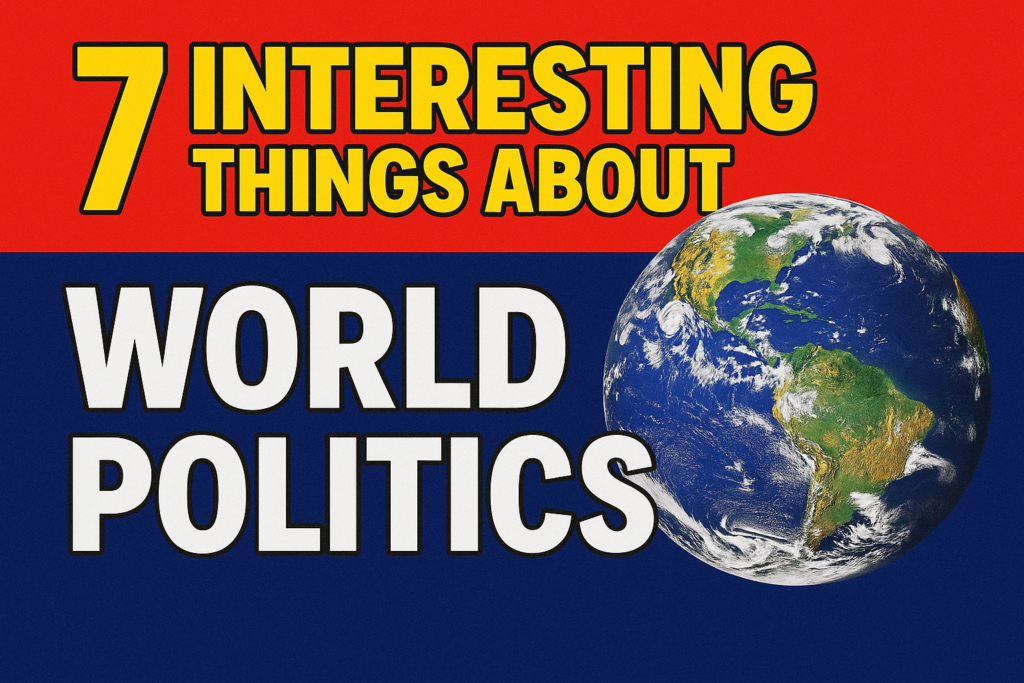
Politics is the structured process through which societies make collective decisions. It encompasses the mechanisms of governance, the distribution of power, and the formulation of policies that impact every facet of our lives. From local community decisions to international relations, politics shapes the world we live in.
At its core, politics is about negotiation and compromise. It involves various stakeholders—governments, institutions, interest groups, and citizens—who engage in dialogue and debate to reach decisions that reflect the collective will. This dynamic process ensures that diverse perspectives are considered, promoting a more inclusive and representative governance structure.
Moreover, politics is not confined to formal institutions; it permeates everyday life. Our choices, beliefs, and interactions are influenced by political ideologies and decisions. Understanding politics enables individuals to become informed citizens, capable of contributing meaningfully to societal progress.
1. The Interplay Between Politics and Society
Politics and society are intricately linked, each influencing and shaping the other. Political decisions often reflect societal values, norms, and issues, while societal movements can drive political change. For instance, civil rights movements have historically led to significant political reforms. My exploration of sociology illuminated how social structures and group dynamics impact political behavior and policy-making.
2. Historical Context Shapes Political Systems
History provides the backdrop against which political systems evolve. Studying historical events reveals patterns of governance, revolution, and reform. For example, the fall of empires and the rise of democratic states demonstrate how historical contexts influence political ideologies. Delving into history books allowed me to appreciate the complexities of political transformations over time.
3. Globalization and International Politics
In today’s interconnected world, politics transcends national borders. Globalization has led to increased interdependence among countries, necessitating international cooperation on issues like climate change, trade, and security. Understanding international relations and global politics is crucial for addressing transnational challenges effectively.
4. The Role of Political Institutions
Political institutions—such as legislatures, executives, and judiciaries—serve as the framework within which political activity occurs. These institutions establish rules, enforce laws, and provide mechanisms for conflict resolution. Studying political science highlighted the significance of institutional design in promoting stability, accountability, and democratic governance.
5. Media’s Influence on Political Perception
The media plays a pivotal role in shaping public perception of politics. Through news coverage, commentary, and analysis, media outlets inform citizens and influence political discourse. However, media bias and misinformation can distort public understanding. Engaging with diverse and credible sources is essential for developing a well-rounded political perspective. University of Oregon Journalism
6. Political Participation and Civic Engagement
Active participation in politics—through voting, advocacy, or public service—is fundamental to a functioning democracy. Civic engagement empowers individuals to influence decision-making processes and hold leaders accountable. My involvement in community initiatives underscored the impact of grassroots movements in effecting political change.
7. The Impact of Political Policies on Daily Life
Political decisions directly affect various aspects of daily life, including education, healthcare, and economic opportunities. Policies enacted by governments determine resource allocation and societal priorities. Understanding the implications of policy choices enables citizens to advocate for their interests and contribute to policy development.
Insights from Experts
To deepen my understanding of politics, I turned to insights from renowned experts:
-
Dr. Ben Chu emphasizes the enduring nature of globalization and its implications for national policies. Financial Times
-
Andrew Hill discusses the challenges of balancing national interests with global cooperation in the context of political decision-making. Financial Times
-
Lucy Fisher analyzes the complexities of political alliances and their impact on policy outcomes. Financial Times
-
Stephen Bush provides insights into the evolving landscape of political ideologies and their influence on governance. Financial Times
Conclusion
Politics is a multifaceted field that permeates every aspect of society. Through the study of sociology, history, and political science, I have gained a comprehensive understanding of the forces that shape our world. Engaging with expert analyses and participating in civic activities have further enriched my perspective. By staying informed and involved, individuals can contribute to the development of equitable and effective political systems.
References:
-
Hill, A., & Chu, B. (2025). Globalisation can be slowed, but not stopped. Financial Times. Financial Times
-
Fisher, L., & Bush, S. (2025). Trade, tax and leftwing pacts. Financial Times. Financial Times
-
Guide for Politics. (2020). 7 simple ways to really learn more about politics. Guide for Politics
-
University of Edinburgh. (2021). Why I chose to study Sociology and Politics. Edinburgh Blogs Bournemouth University
